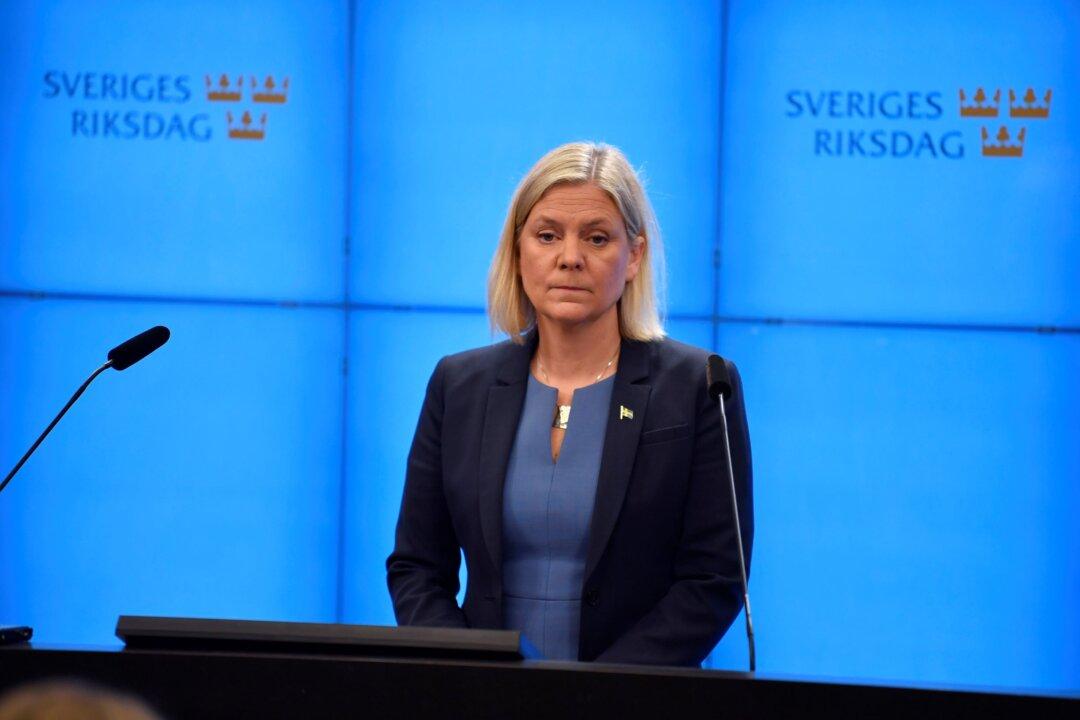COPENHAGEN, Denmark—Swedish lawmakers will vote next week on whether Magdalena Andersson, who briefly became the country’s first female prime minister before resigning after a budget defeat, can form a minority government, the parliament speaker said Thursday.
Andersson served as prime minister for seven hours before stepping down Wednesday after the Greens left her two-party coalition. Their move followed the rejection of her government’s budget proposal—in favor of one presented by opposition parties including the right-wing populist Sweden Democrats.





